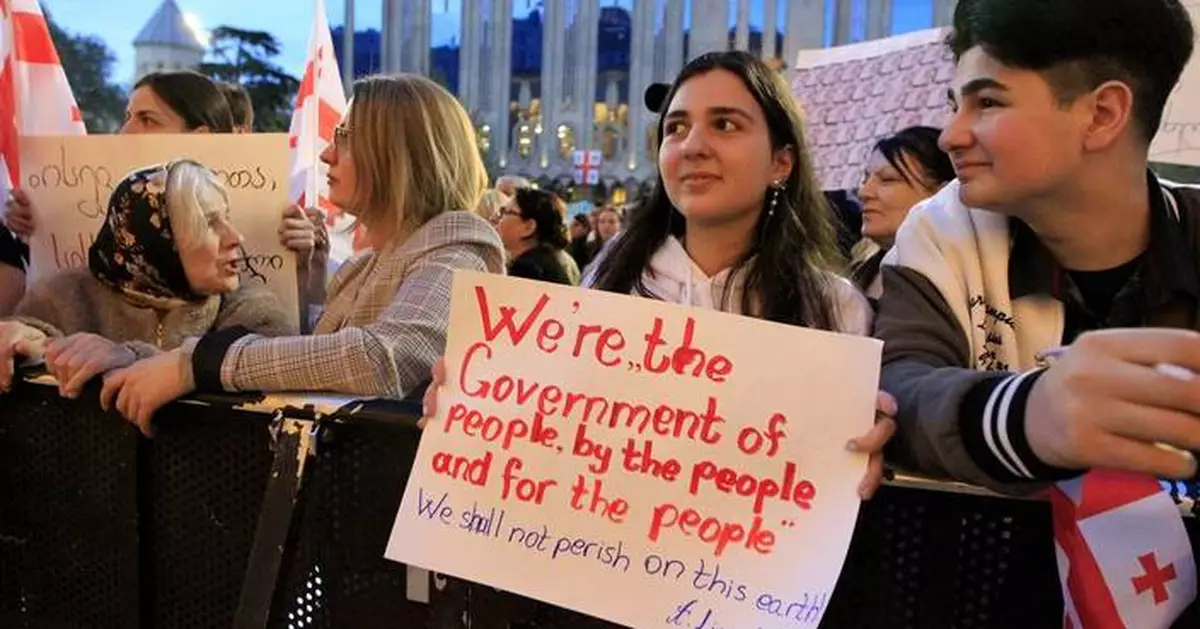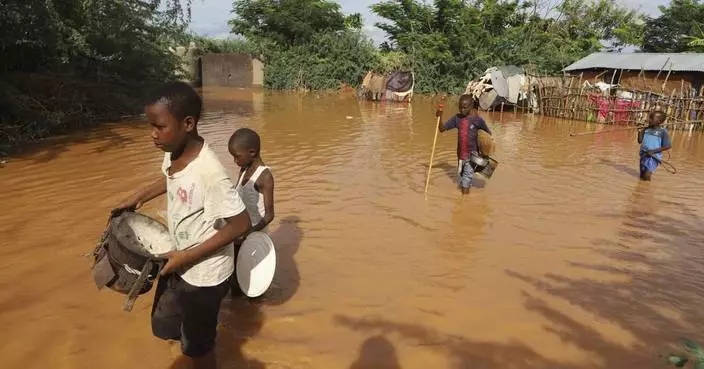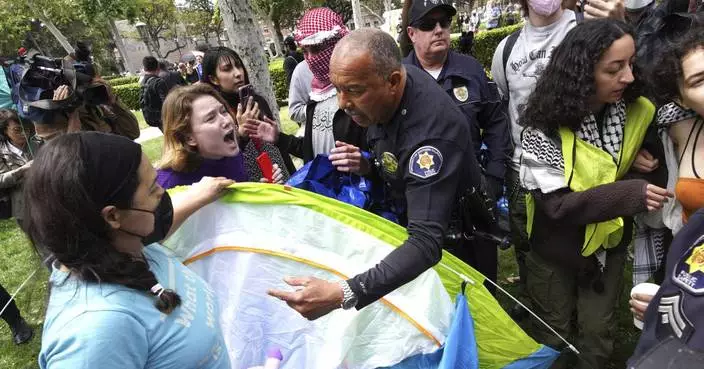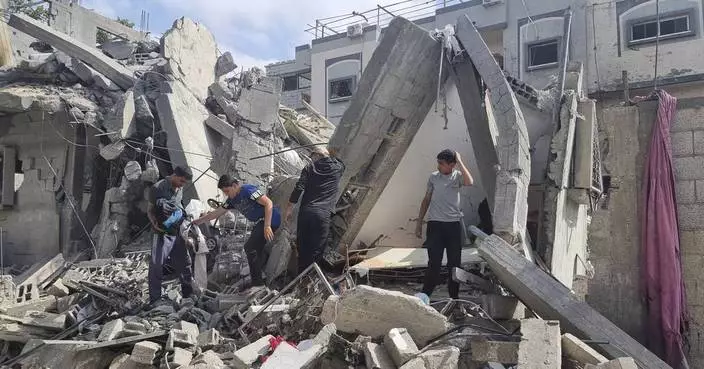TBILISI, Georgia (AP) — Police in the capital of Georgia on Tuesday unleashed tear gas to break up a large demonstration outside the country's parliament to protest a proposed law that would require media and non-commercial organizations to register as being under foreign influence if they receive more than 20% of their funding from abroad.
Opponents say the proposal would obstruct Georgia's long-sought prospects of joining the European Union and denounce it as “the Russian law” because of similar legislation used by Moscow to stigmatize independent news media and organizations seen as being at odds with the Kremlin.
Click to Gallery
TBILISI, Georgia (AP) — Police in the capital of Georgia on Tuesday unleashed tear gas to break up a large demonstration outside the country's parliament to protest a proposed law that would require media and non-commercial organizations to register as being under foreign influence if they receive more than 20% of their funding from abroad.
Protestors gather outside the parliament building in Tbilisi, Georgia, on Tuesday, April 16, 2024, to protest against "the Russian law" similar to a law that Russia uses to stigmatize independent news media and organizations seen as being at odds with the Kremlin. (AP Photo/Zurab Tsertsvadze)
A woman speaks to police officers as protesters gather outside the parliament building in Tbilisi, Georgia, on Tuesday, April 16, 2024, to protest against the "the Russian law" similar to a law that Russia uses to stigmatize independent news media and organizations seen as being at odds with the Kremlin. (AP Photo/Shakh Aivazov)
Police officers block protestors as they gather outside the parliament building in Tbilisi, Georgia, on Tuesday, April 16, 2024, to protest against "the Russian law" similar to a law that Russia uses to stigmatize independent news media and organizations seen as being at odds with the Kremlin. (AP Photo/Zurab Tsertsvadze)
Police officers block protestors as they gather outside the parliament building in Tbilisi, Georgia, on Tuesday, April 16, 2024, to protest against "the Russian law" similar to a law that Russia uses to stigmatize independent news media and organizations seen as being at odds with the Kremlin. (AP Photo/Zurab Tsertsvadze)
Police officers block protestors as they gather outside the parliament building in Tbilisi, Georgia, on Tuesday, April 16, 2024, to protest against "the Russian law" similar to a law that Russia uses to stigmatize independent news media and organizations seen as being at odds with the Kremlin. (AP Photo/Zurab Tsertsvadze)
Police block protesters as they gather outside the parliament building in Tbilisi, Georgia, on Tuesday, April 16, 2024, to protest against "the Russian law" similar to a law that Russia uses to stigmatize independent news media and organizations seen as being at odds with the Kremlin. (AP Photo/Shakh Aivazov)
A protester shouts outside the parliament building in Tbilisi, Georgia, on Tuesday, April 16, 2024, to protest against "the Russian law" similar to a law that Russia uses to stigmatize independent news media and organizations seen as being at odds with the Kremlin. (AP Photo/Zurab Tsertsvadze)
Protesters with a poster gather outside the parliament building in Tbilisi, Georgia, on Tuesday, April 16, 2024, to protest against "the Russian law" similar to a law that Russia uses to stigmatize independent news media and organizations seen as being at odds with the Kremlin. (AP Photo/Shakh Aivazov)
The parliament debated the bill, but put off voting on its first reading until Wednesday.
News reports said some demonstrators were arrested in the clash with police, but no figures were immediately available.
The bill is nearly identical to a proposal that the governing party was pressured to withdraw last year after large street protests.
The law says non-commercial organizations and news media that receive 20% or more of their funding from overseas would have to register as “pursuing the interests of a foreign power” — the only change in wording from the draft law withdrawn last year, which said that relevant groups must register as “agents of foreign influence.”
Georgia’s President Salome Zourabichvili would veto the law if it is passed by parliament, her parliamentary representative Girogi Mskhiladze has previously said.
But that veto might not be long-lasting as Zourabichvili’s term ends this year and under Georgia’s constitution changes, the next president will be named by an electoral college that includes all members of parliament.
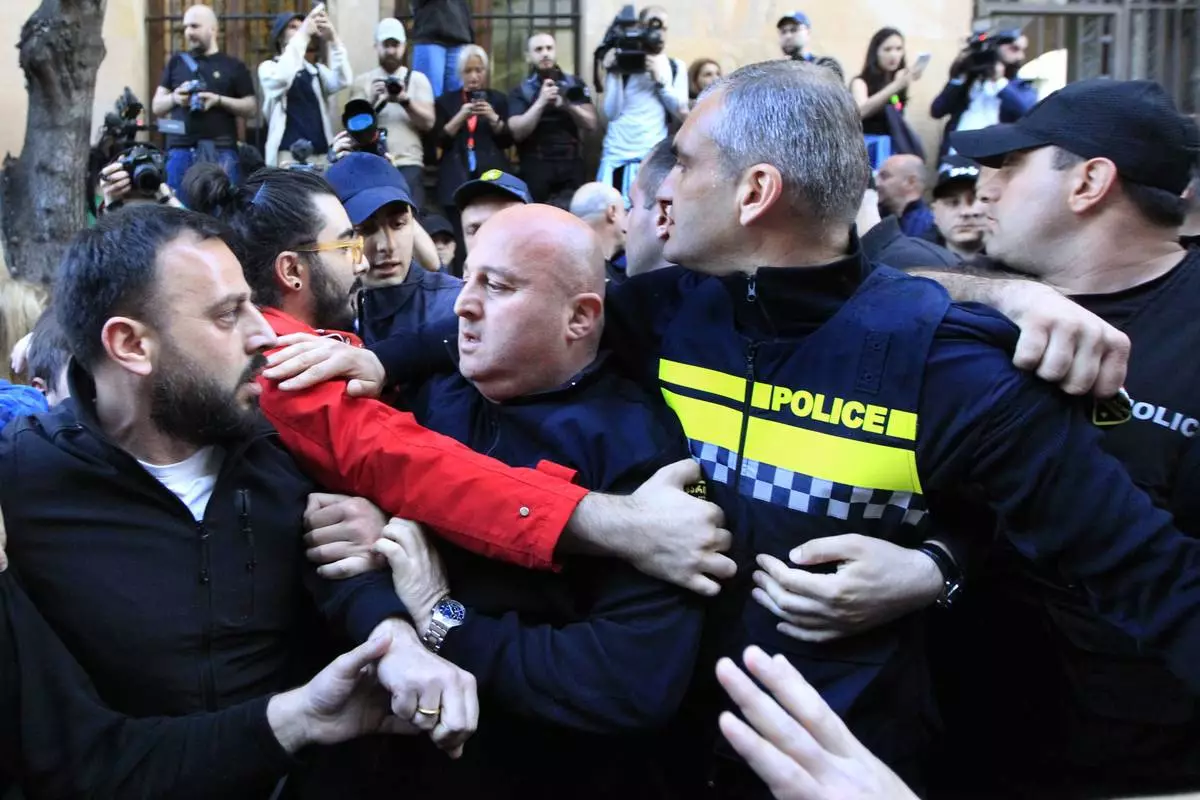
Police block protesters gathered outside the parliament building in Tbilisi, Georgia, on Tuesday, April 16, 2024, to protest against "the Russian law" similar to a law that Russia uses to stigmatize independent news media and organizations seen as being at odds with the Kremlin. (AP Photo/Shakh Aivazov)
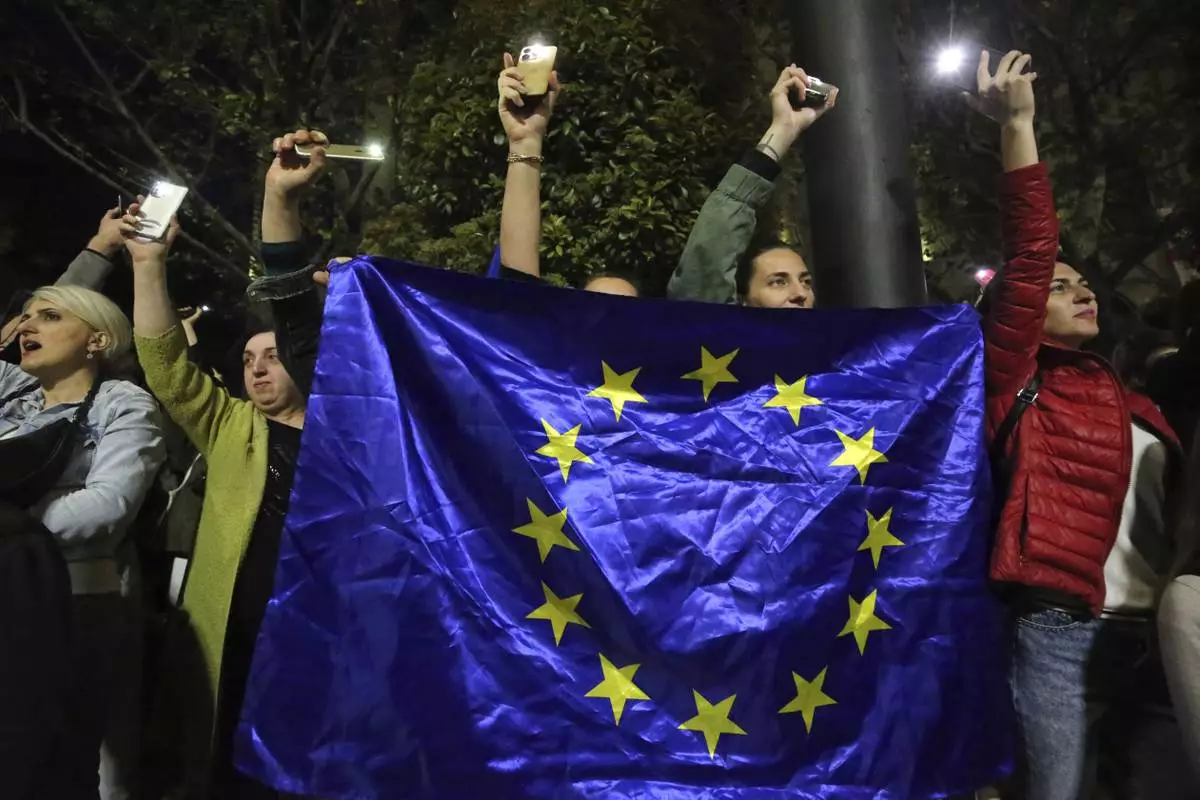
Protestors gather outside the parliament building in Tbilisi, Georgia, on Tuesday, April 16, 2024, to protest against "the Russian law" similar to a law that Russia uses to stigmatize independent news media and organizations seen as being at odds with the Kremlin. (AP Photo/Zurab Tsertsvadze)
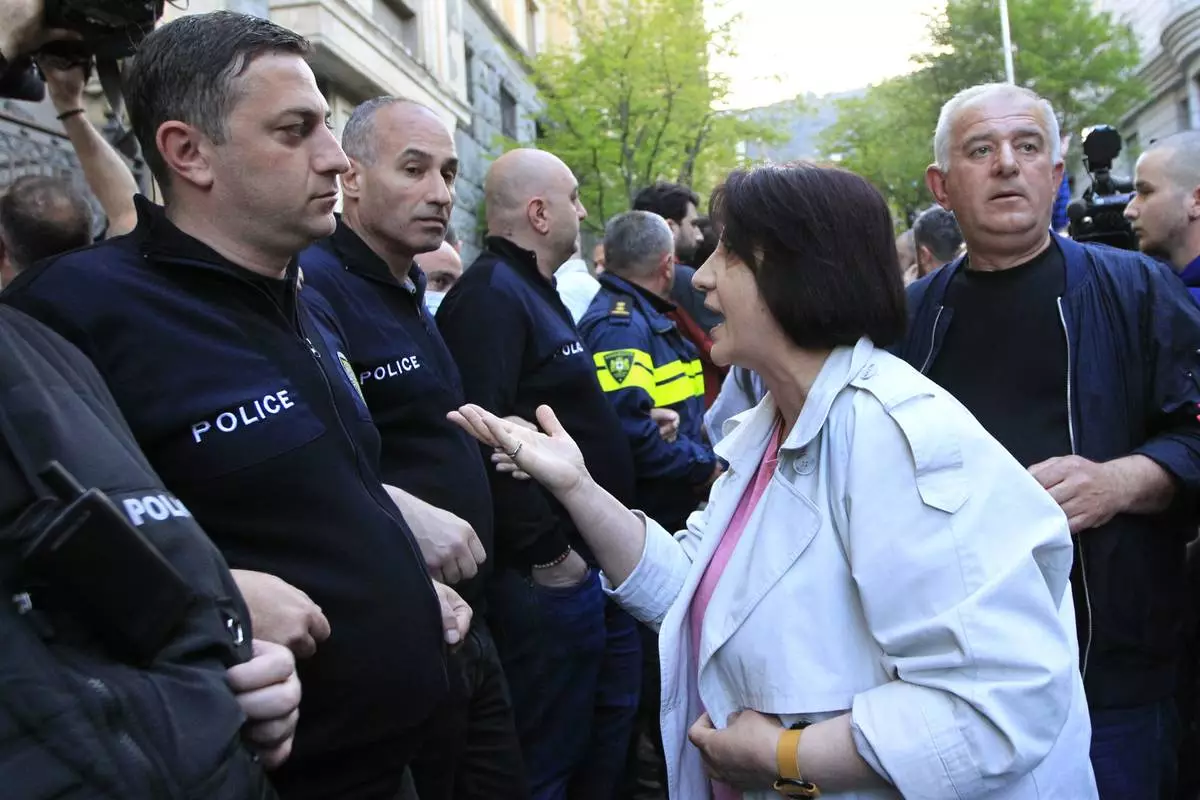
A woman speaks to police officers as protesters gather outside the parliament building in Tbilisi, Georgia, on Tuesday, April 16, 2024, to protest against the "the Russian law" similar to a law that Russia uses to stigmatize independent news media and organizations seen as being at odds with the Kremlin. (AP Photo/Shakh Aivazov)
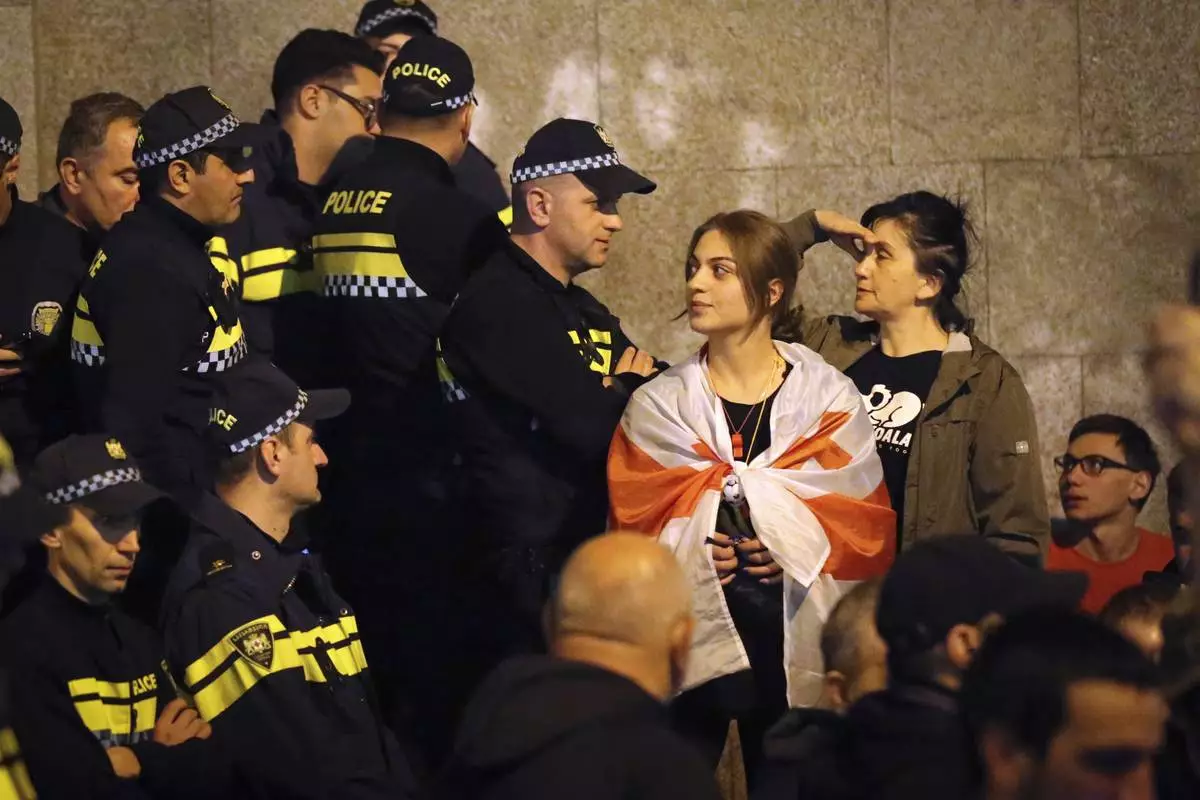
Police officers block protestors as they gather outside the parliament building in Tbilisi, Georgia, on Tuesday, April 16, 2024, to protest against "the Russian law" similar to a law that Russia uses to stigmatize independent news media and organizations seen as being at odds with the Kremlin. (AP Photo/Zurab Tsertsvadze)
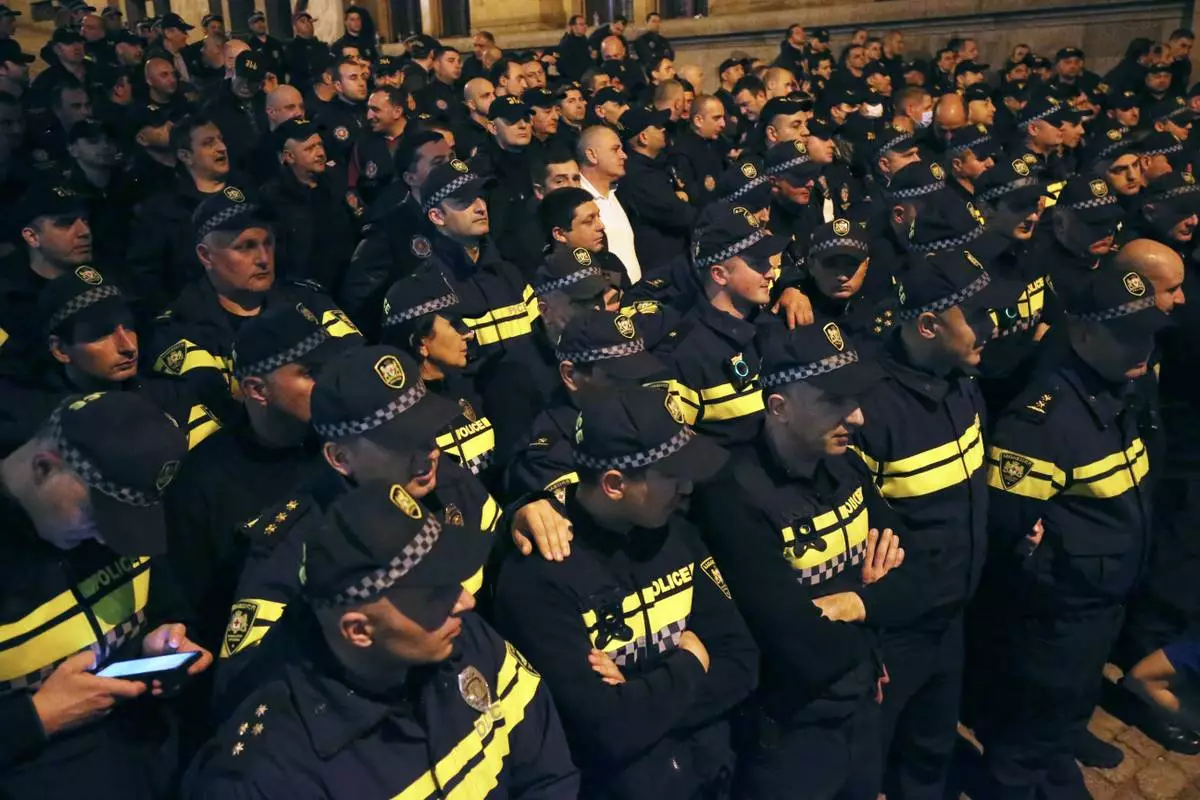
Police officers block protestors as they gather outside the parliament building in Tbilisi, Georgia, on Tuesday, April 16, 2024, to protest against "the Russian law" similar to a law that Russia uses to stigmatize independent news media and organizations seen as being at odds with the Kremlin. (AP Photo/Zurab Tsertsvadze)
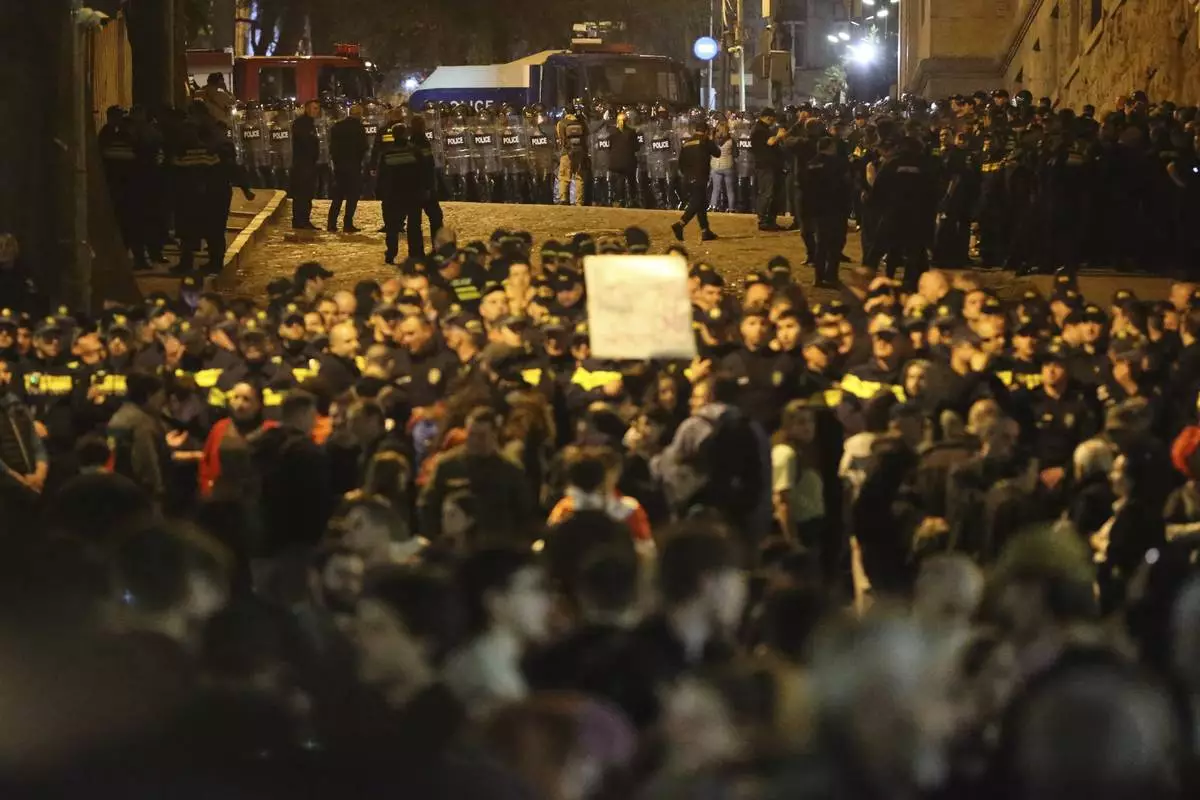
Police officers block protestors as they gather outside the parliament building in Tbilisi, Georgia, on Tuesday, April 16, 2024, to protest against "the Russian law" similar to a law that Russia uses to stigmatize independent news media and organizations seen as being at odds with the Kremlin. (AP Photo/Zurab Tsertsvadze)
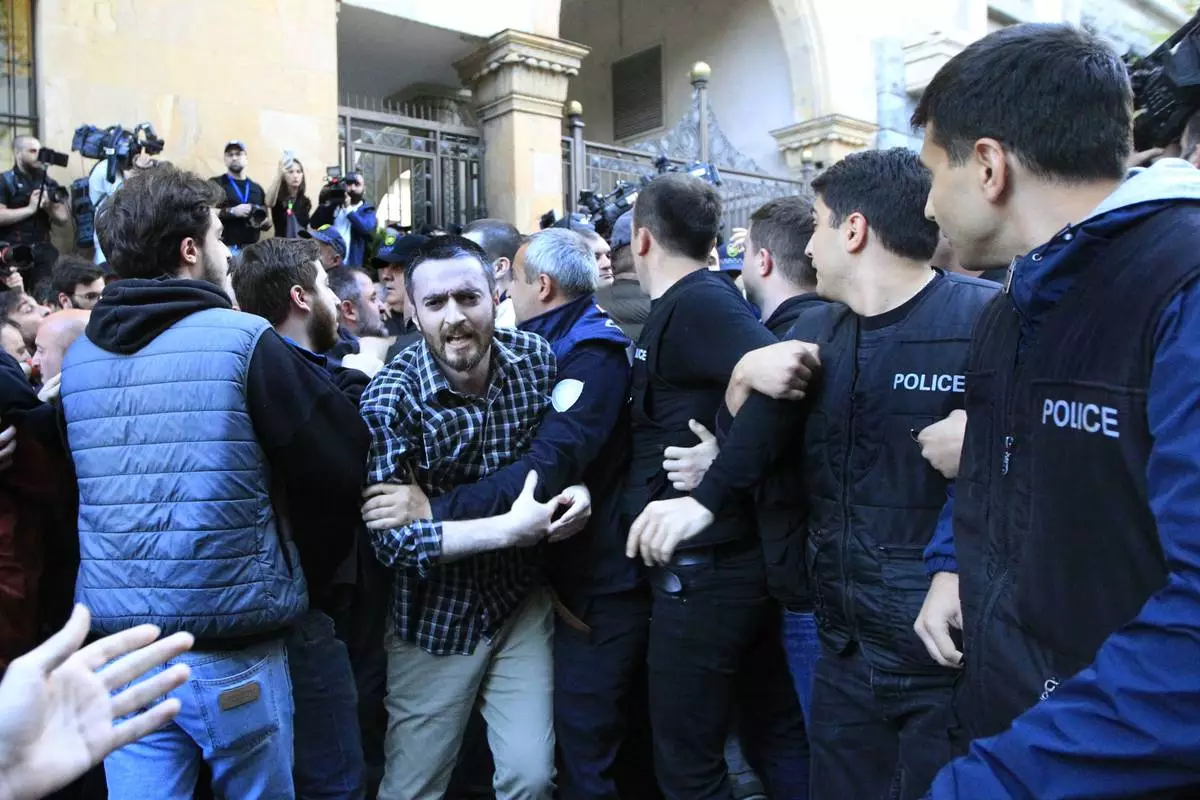
Police block protesters as they gather outside the parliament building in Tbilisi, Georgia, on Tuesday, April 16, 2024, to protest against "the Russian law" similar to a law that Russia uses to stigmatize independent news media and organizations seen as being at odds with the Kremlin. (AP Photo/Shakh Aivazov)
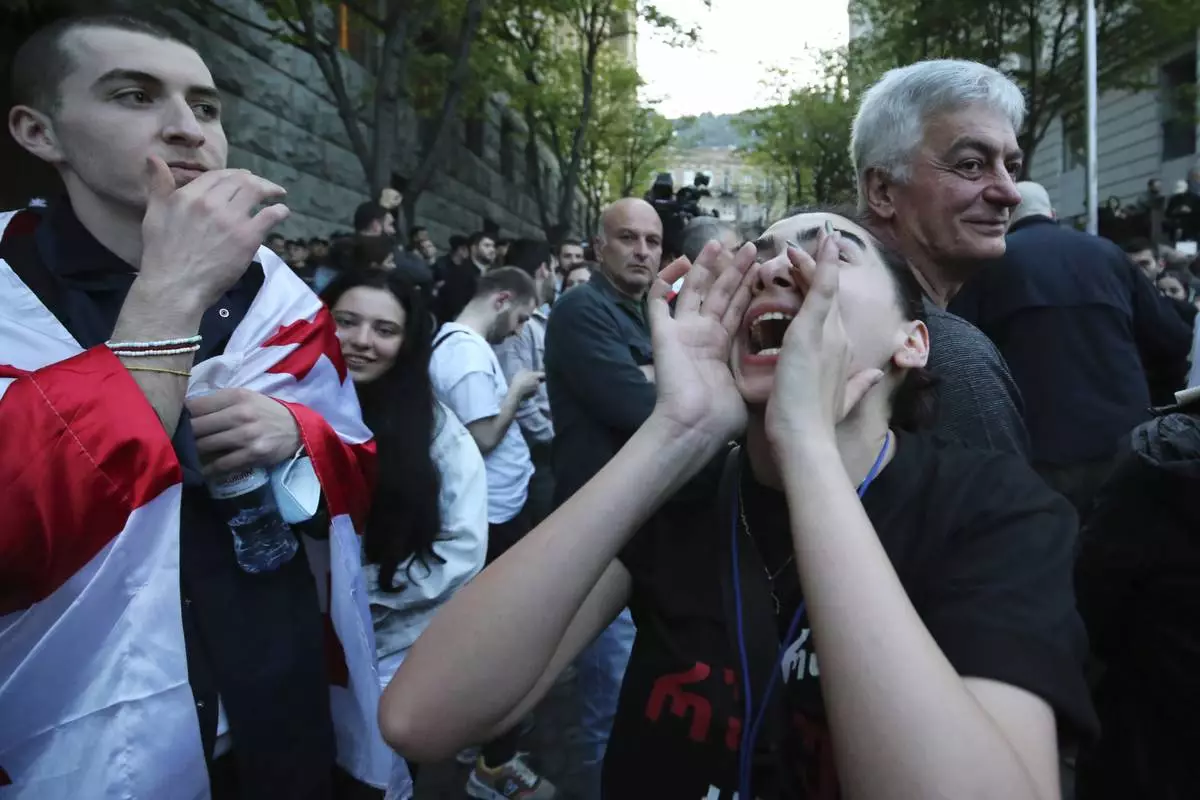
A protester shouts outside the parliament building in Tbilisi, Georgia, on Tuesday, April 16, 2024, to protest against "the Russian law" similar to a law that Russia uses to stigmatize independent news media and organizations seen as being at odds with the Kremlin. (AP Photo/Zurab Tsertsvadze)
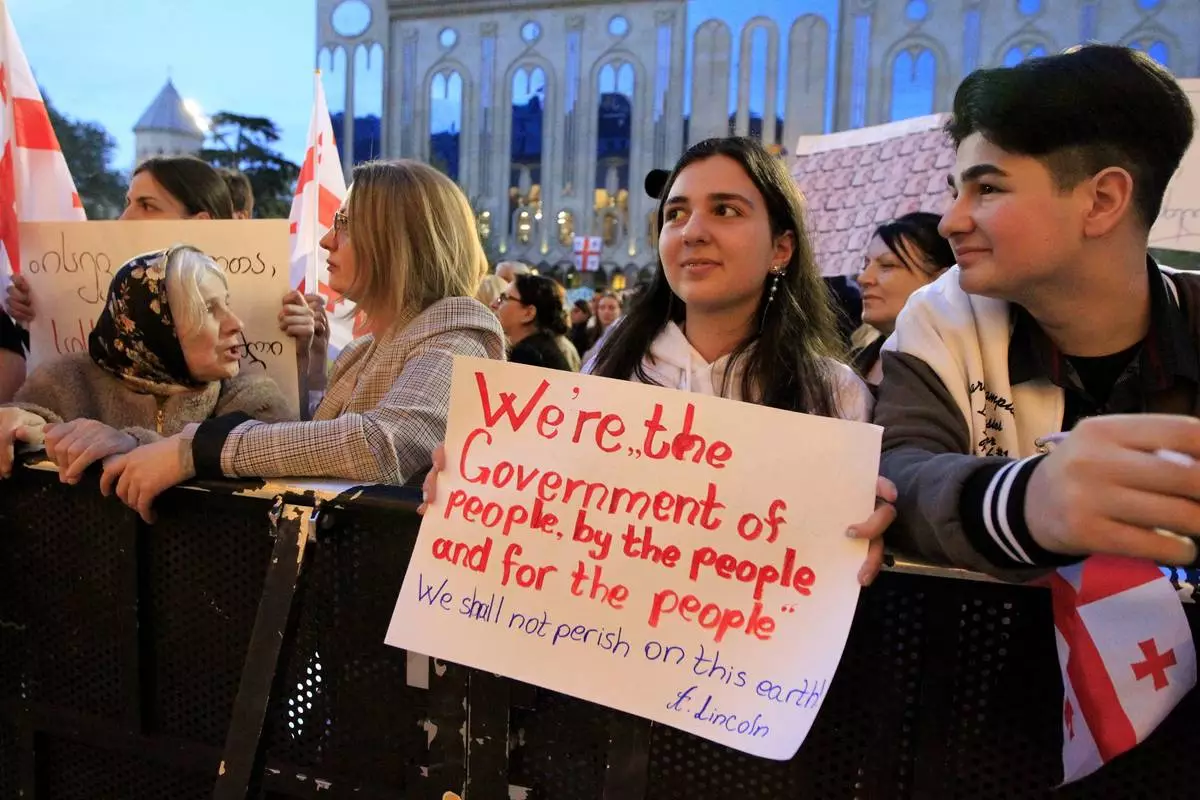
Protesters with a poster gather outside the parliament building in Tbilisi, Georgia, on Tuesday, April 16, 2024, to protest against "the Russian law" similar to a law that Russia uses to stigmatize independent news media and organizations seen as being at odds with the Kremlin. (AP Photo/Shakh Aivazov)
SÃO PAULO--(BUSINESS WIRE)--Apr 30, 2024--
Emergent Cold Latin America (Emergent Cold LatAm), the region’s largest provider of temperature-controlled storage and logistics solutions, announced today the opening of the largest frozen food warehouse in Chile, located in Talcahuano. This facility also marks the company's most significant expansion in Latin America. Situated in a region renowned globally for its seafood and fruit production and exports, the warehouse represents a strategic enhancement of the local cold chain infrastructure.
This press release features multimedia. View the full release here: https://www.businesswire.com/news/home/20240430475373/en/
The facility has a storage capacity of 294,000 m³ and 37,000 pallets. This development is expected to generate 150 direct and approximately 500 indirect jobs, bolstering the local economy.
This is Emergent Cold LatAm's first completed construction project in Chile, following the acquisition of Friopacífico in 2021 and subsequent acquisitions of Multifrigo and Hook in 2023. The company now operates nine facilities across several key regions, including Valparaíso, Metropolitan, Biobío, and Los Lagos.
Joaquín Del Campo, Managing Director for the Pacific Region at Emergent Cold LatAm, highlighted the strategic importance of this investment: "We are committed to supporting the Chilean seafood and agriculture industries. The increase in mackerel quotas and the growth in Coho salmon and IQF fruit production require enhanced capacity for temperature-controlled storage, perfectly aligned with this new facility."
Neal Rider, Co-Founder and CEO of Emergent Cold LatAm, emphasized the favorable conditions in Chile for business expansion: "Chile's importance in the global food supply chain make it an important part of our regional investment strategy. This investment is part of our ongoing efforts to support the growth of the seafood and agriculture industries and other sectors requiring cold storage solutions."
The Company is already planning an expansion phase for this new warehouse, which should be completed by early 2025. Total storage capacity following this future expansion will be 389,000 m³, representing a 50% increase in total capacity in the country and double the current availability in the Concepción region.
About Emergent Cold LatAm:
Emergent Cold Latin America ( www.emergentcoldlatam.com ) is the largest provider of temperature-controlled logistics and storage for food in Latin America and the Caribbean. It was founded in August 2021 to meet the need for modern cold chain solutions in the market, and the growing demand from local and global customers. Its main investors include Stonepeak, D1 Capital, and Lineage.
The company continues to invest in building and expanding a cold chain network of the highest quality in order to provide end-to-end solutions for its customers throughout the region. Emergent Cold LatAm currently operates more than 70 cold storage facilities in 11 countries in Latin America, in addition to new warehouses under construction.


New Emergent Cold LatAm warehouse in Talcahuano, Chile. (Photo: Business Wire)











